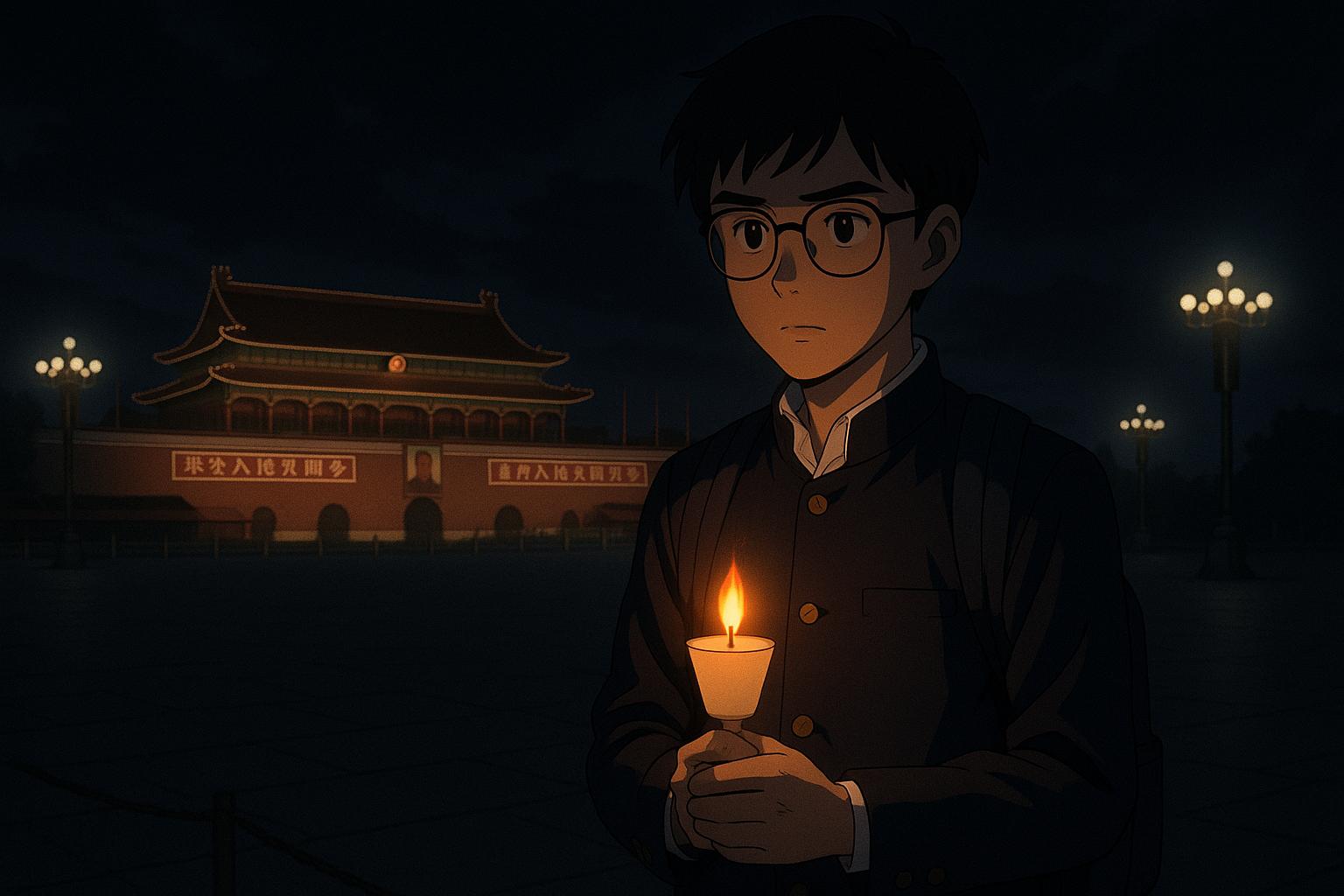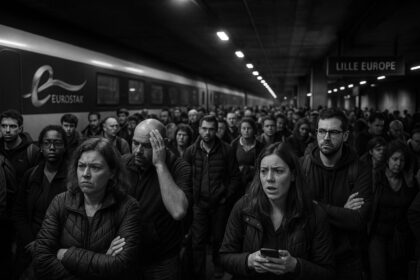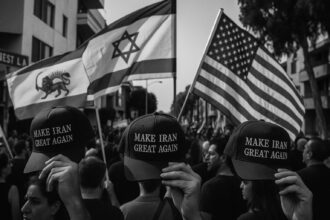On the 36th anniversary of the Tiananmen Square massacre, bereaved families demand an independent investigation as China intensifies authoritarian controls under Xi Jinping. The unresolved legacy of June 4, 1989, continues to challenge global engagement with Beijing amid ongoing crackdowns on dissent.
On this day, 36 years ago, the world witnessed a tragic turn of events as thousands of innocent lives were lost during a brutal crackdown on pro-democracy protests in Beijing’s Tiananmen Square. The events of June 4, 1989, where students and citizens clamoured for reform, freedom, and accountability, are etched in history as a catastrophic failure of governance and humanity. British diplomatic cables estimate the death toll may have reached as high as 10,000, pushing the limits of atrocity and highlighting the severity of the crackdown.
In a recent statement, the Tiananmen Mothers, a group of bereaved families whose loved ones were killed, injured, or imprisoned during the protests, called for an independent investigation into the massacre. “The bereaved will never forget,” they declared. Their persistent grief underscores the notion that the false narrative propagated by the Chinese Communist Party (CCP) cannot erase the reality of the suffering experienced during that dark chapter. For the regime, June 4 remains a day wiped from the nation’s collective memory, with no commemoration permitted in mainland China. Even in Hong Kong, known for its previous memorial vigils, such gatherings have been banned since 2019, reinforcing a climate of fear where even lighting a candle can lead to imprisonment.
Despite the overwhelming suppression, the legacy of the 1989 protests has not vanished entirely. The repression of freedoms in China has intensified under Xi Jinping’s leadership. Reports indicate increasing authoritarianism, with escalating persecutions aimed at various faith groups and dissenting voices, notably the Uyghurs and Tibetan activists. The actions of the CCP signal a commitment to maintaining control through fear and violence, evident in the establishment of clandestine operations abroad, targeting expatriates and critics.
Nevertheless, as the landscape has transformed, so too have the hopes and desires of the Chinese population. Many citizens express a longing for freedom, a sentiment echoed in recent protests like the White Paper movement in 2022. These events demonstrate that despite decades of repression, the yearning for democratic ideals persists.
Even as the Chinese state appears undeterred and continues its authoritarian ascent, the broader international community must grapple with its complicity in the regime’s actions. The decision by the United States to grant China “permanent normal trading status” in the early 2000s now faces scrutiny, suggesting that engagement with a government enacting widespread human rights violations requires reassessment. Advocacy for targeted sanctions against individuals implicated in human rights abuses, alongside conditional diplomatic relations, emerges as a crucial pathway to address ongoing injustices.
International figures, including U.S. Secretary of State Marco Rubio, have reiterated the brave actions of those who lost their lives in the 1989 demonstrations, labelling the ideals of freedom and democracy as universal. However, amid rising geopolitical tensions and ongoing trade disputes, the challenge becomes not simply whether to engage with China, but how to reconfigure that engagement towards responsible and ethical terms.
In light of Xi’s consolidation of power, which some argue has only strengthened in the wake of economic challenges, the need for a paradigm shift in how the free world interacts with the CCP grows ever more urgent. Calls exist not only for the release of political prisoners but for a collective moral awakening that places human rights above financial gain. Figures like Jimmy Lai, jailed for expressing dissent, represent the millions still yearning for justice and liberation.
As we recall the events of Tiananmen Square, it reminds us of the courage displayed by ordinary citizens in their pursuit of dignity and freedom. It compels us to reflect on the broader implications of their sacrifices and to confront the realities of authoritarianism in today’s world. Will the free world finally stand up to the oppressive regime in Beijing, placing principles over profits? The legacy of Tiananmen calls us to action, urging a redefinition of our moral responsibilities towards those living under tyranny.
 Reference Map:
Reference Map:
- Paragraph 1 – [1], [3]
- Paragraph 2 – [1], [4]
- Paragraph 3 – [2], [5]
- Paragraph 4 – [6], [7]
- Paragraph 5 – [1], [3]
- Paragraph 6 – [1], [5]
- Paragraph 7 – [1], [6]
- Paragraph 8 – [1], [2]
Source: Noah Wire Services
- https://www.independent.co.uk/voices/tiananmen-square-massacre-beijing-china-anniversary-ccp-b2762715.html – Please view link – unable to able to access data
- https://www.reuters.com/world/china/rubio-praises-bravery-chinese-people-killed-tiananmen-square-crackdown-2025-06-03/ – On the 36th anniversary of the Tiananmen Square massacre, U.S. Secretary of State Marco Rubio honoured the bravery of Chinese citizens killed during the 1989 pro-democracy movement in Beijing. In a statement, Rubio remembered those who lost their lives and those who continue to seek justice despite ongoing repression. He criticised the Chinese Communist Party (CCP) for censoring the events and reaffirmed that the ideals of freedom and democracy are universal. The Chinese government has never released an official death toll, but rights groups and eyewitnesses estimate the number could reach into the thousands. The anniversary remains a taboo in China, though it is commemorated overseas. Rubio’s remarks came against a backdrop of heightened U.S.-China tensions, marked by President Donald Trump’s imposition of 145% tariffs on Chinese goods, which China countered with 125% tariffs on U.S. products. Although both nations have agreed to a temporary reduction in tariffs, underlying trade disputes remain unresolved. Talks between Presidents Trump and Xi Jinping are expected soon to address issues including critical minerals and trade imbalances. ([reuters.com](https://www.reuters.com/world/china/rubio-praises-bravery-chinese-people-killed-tiananmen-square-crackdown-2025-06-03/?utm_source=openai))
- https://www.reuters.com/world/china/chinas-tiananmen-square-demonstrations-crackdown-2025-06-04/ – June 4, 2025, marks the 36th anniversary of the Chinese government’s violent crackdown on pro-democracy demonstrations in Beijing’s Tiananmen Square. The movement began in April 1989 after the death of reformist leader Hu Yaobang, sparking public demand for political reform, anti-corruption measures, and greater freedoms. Students led the charge, staging mass protests and hunger strikes, with participation swelling to over a million. Tensions escalated after martial law was declared on May 20. On June 3-4, Chinese troops and tanks forcefully cleared the square, killing hundreds—and possibly thousands—of unarmed protesters and citizens. The Chinese government has never provided an official death toll, and the event remains heavily censored in China. Iconic images, like that of an unidentified man standing in front of advancing tanks, symbolised global outrage and defiance. Despite international condemnation, the incident is not officially acknowledged or commemorated by the Chinese Communist Party. Key figures involved, such as Party Chief Zhao Ziyang, were purged and events since have been subject to strict control and suppression within mainland China. ([reuters.com](https://www.reuters.com/world/china/chinas-tiananmen-square-demonstrations-crackdown-2025-06-04/?utm_source=openai))
- https://www.reuters.com/world/china/hong-kong-activist-challenges-chinas-tiananmen-taboo-exile-taiwan-2025-06-02/ – Fu Tong, a Hong Kong pro-democracy activist who fled to Taiwan after being charged with rioting in 2020, continues to challenge China’s suppression of the 1989 Tiananmen Square massacre. Along with his wife Elaine To, Fu was among the first to face charges amid Hong Kong’s 2019 anti-China protests. In exile, Fu remains committed to advocating for Hong Kong’s freedom and commemorating the June 4 crackdown, which remains a taboo subject in mainland China. In Taipei, he co-hosts a Hong Kong human rights exhibition and leads tours that showcase protest-related artwork. Fu emphasises the significance of Taiwan as a rare Chinese-speaking region where open discussion and condemnation of the 1989 events are still possible, unlike in Hong Kong where a national security law has banned such vigils. His ongoing activism reflects a personal sense of duty to uphold democratic values and challenge Beijing’s narrative surrounding Tiananmen. Despite the risks, Fu remains determined to keep the memory of the massacre alive and advocate for justice. ([reuters.com](https://www.reuters.com/world/china/hong-kong-activist-challenges-chinas-tiananmen-taboo-exile-taiwan-2025-06-02/?utm_source=openai))
- https://apnews.com/article/269c79cd000728cdd720cd7b59211cb5 – On June 4th, U.S. Congress members commemorated the 35th anniversary of the Tiananmen Square crackdown, warning about the continuing ruthlessness of the Chinese Communist Party. Congressman Raja Krishnamoorthi and Rep. Nancy Pelosi highlighted that current Chinese leader Xi Jinping could resort to violence like his predecessors. The commemorations included former student leaders and activists, with a candlelight vigil held at a replica of the Goddess of Democracy statue. The U.S. has shifted its policy towards China, seeing it now as a competitor. Tensions exist over South China Sea militarization and threats to Taiwan. The Chinese embassy in Washington refuted the criticism, insisting on China’s right development path and opposing U.S. interference. The U.S. State Department honoured Tiananmen’s victims and condemned China’s continued suppression, standing in solidarity with those fighting for human rights and freedoms. ([apnews.com](https://apnews.com/article/269c79cd000728cdd720cd7b59211cb5?utm_source=openai))
- https://www.lemonde.fr/international/article/2024/06/05/a-pekin-quelques-familles-chinoises-commemorent-le-massacre-de-tiananmen-malgre-la-repression_6237435_3210.html – In Beijing, despite state repression, some Chinese families commemorated the Tiananmen massacre on June 4, 1989. Thirty-five years after the bloody suppression of the movement, they gathered at the Wanan cemetery under police surveillance, demanding official recognition of the massacre and the right to mourn publicly. Organised by You Weijie, spokesperson for the families, the commemoration recalled the students’ hope for an honest government fighting corruption. However, any public commemoration remains prohibited. In Hong Kong, candlelight vigils in Victoria Park have been banned since 2020. Activists and lawyers have been arrested or sent on ‘forced holidays’. In Taiwan, the last place in the Chinese-speaking world where such commemorations are possible, the new president assured that the memories of June 4 would not disappear. Hundreds gathered in Taipei to keep the memory of Tiananmen alive, defying China’s efforts to erase it. ([lemonde.fr](https://www.lemonde.fr/international/article/2024/06/05/a-pekin-quelques-familles-chinoises-commemorent-le-massacre-de-tiananmen-malgre-la-repression_6237435_3210.html?utm_source=openai))
- https://www.reuters.com/world/asia-pacific/taiwan-president-says-tiananmen-crackdown-will-never-be-forgotten-2024-06-04/ – On the 35th anniversary of the 1989 Tiananmen Square crackdown, Taiwan President Lai Ching-te pledged to preserve the memory of the massacre and support those advocating for Chinese democracy. The Tiananmen Square events, where Chinese troops violently suppressed pro-democracy protests, are a censored and taboo subject in China. However, commemorations are held in cities abroad, including Taipei, where Taiwanese leaders often use the anniversary to criticise China’s actions. In a Facebook post, Lai emphasised the importance of responding to authoritarianism with freedom and ensuring that the memory of June 4th endures. Lai’s stance on democracy and freedom is in direct opposition to China, which labels him a separatist. China recently conducted military exercises around Taiwan in response to Lai’s pro-independence positions. Despite this, Lai maintains that Taiwan’s future should be decided by its own people and continues to seek dialogue with Beijing, which has so far rejected his proposals. ([reuters.com](https://www.reuters.com/world/asia-pacific/taiwan-president-says-tiananmen-crackdown-will-never-be-forgotten-2024-06-04/?utm_source=openai))













